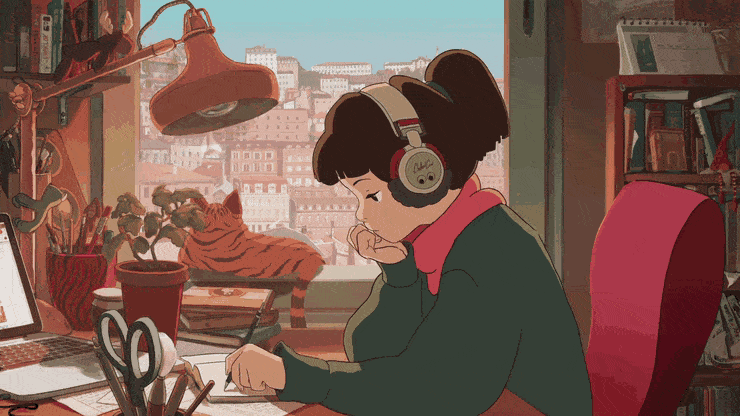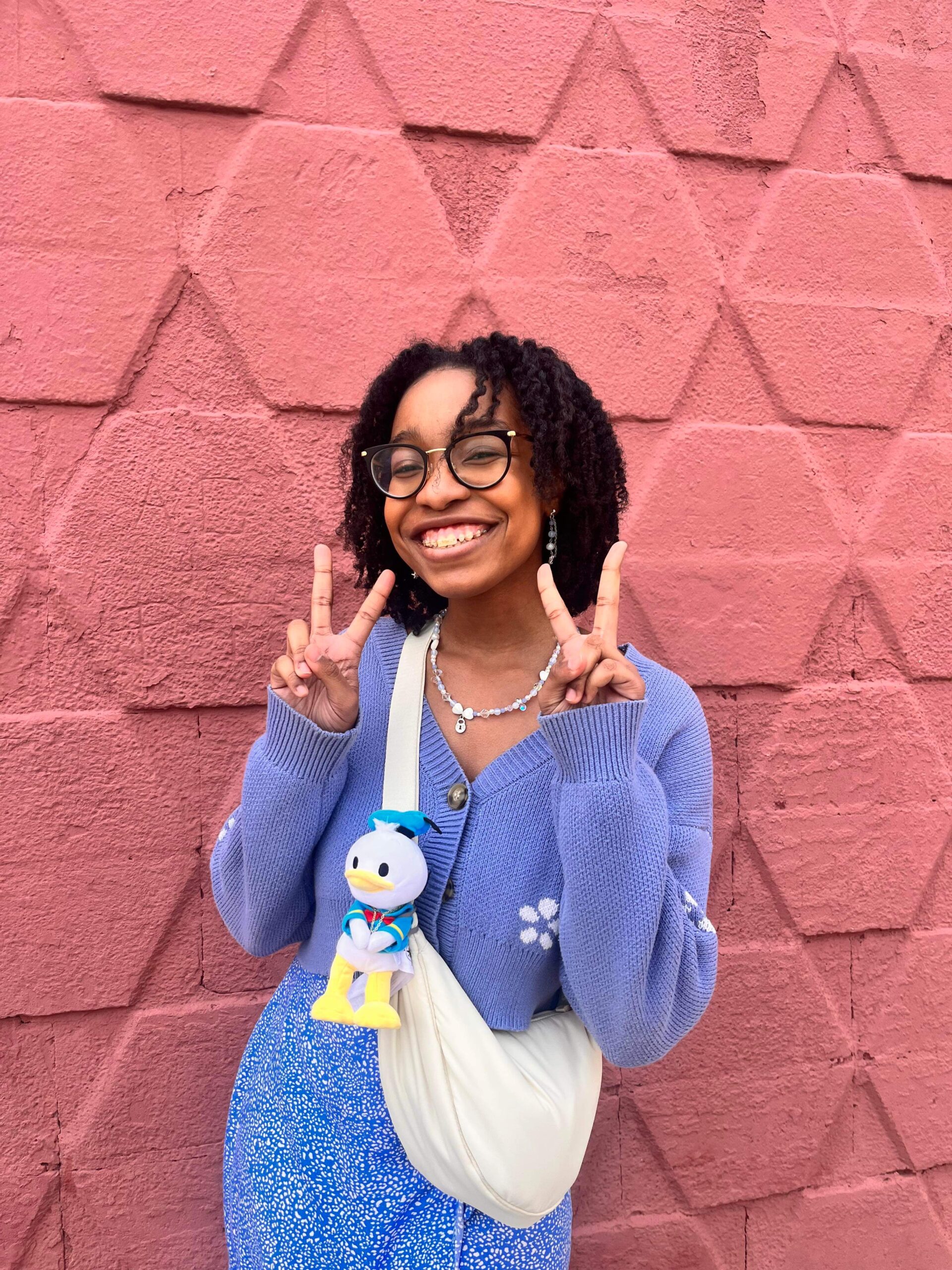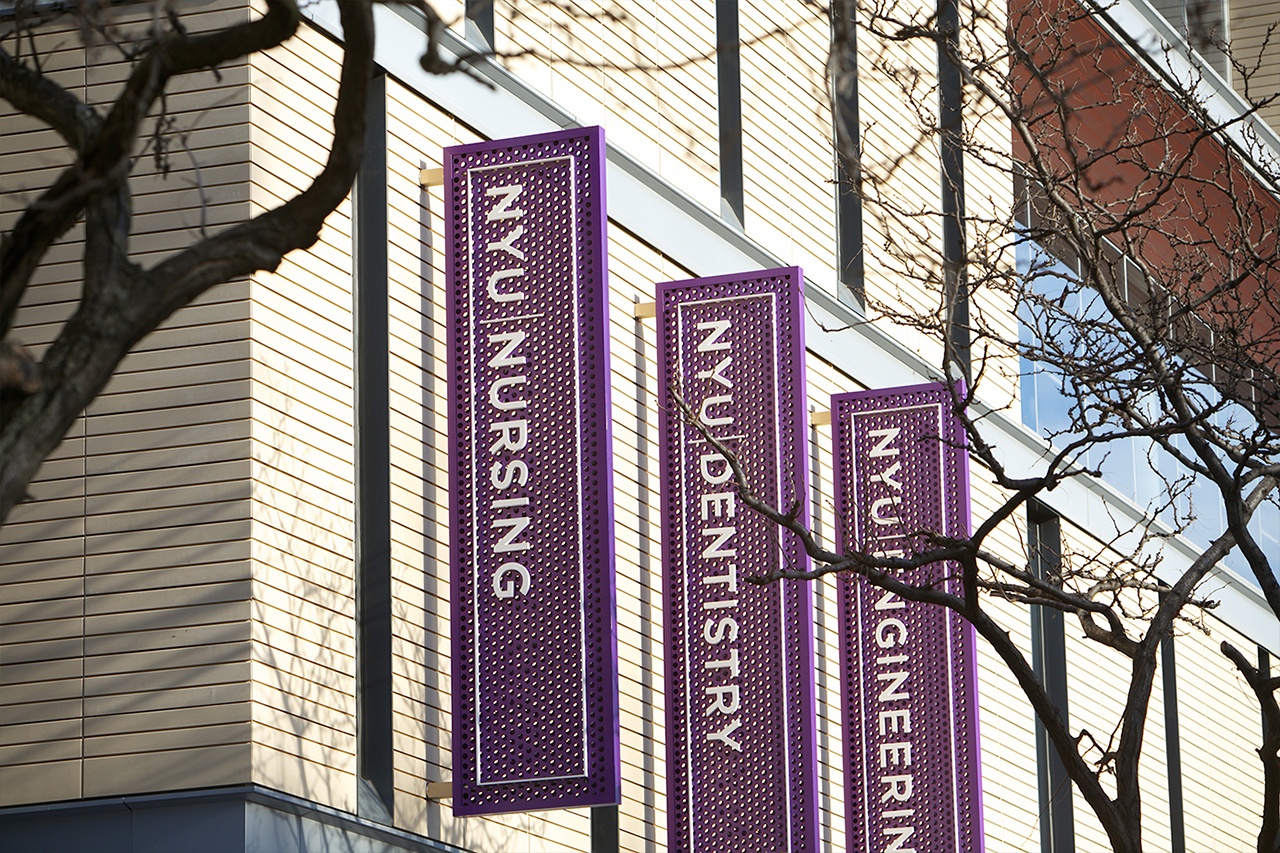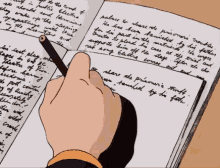
New York City is one of the best places for aspiring writers! It is overflowing with inspiration for stories, from the tourists merging in Times Square to the unique and fashionable characters hopping on and off the subway. What’s more, as a headquarters for major publishing and media companies, there’s no limit to the opportunities writing students can take advantage of.
English and American Literature and Creative Writing Aren’t the Only Programs for Aspiring Writers!
I’m an aspiring television writer, and when I was researching schools, I found that most of them only offered degrees in English or Creative Writing. While there’s nothing wrong with these programs, I wanted to focus on writing scripts and learning about the entertainment industry in college. Now I’m a junior at NYU studying Dramatic Writing and concentrating in episodic writing!
There’s so many different forms and approaches to writing, and NYU’s major offerings reflect that difference. So whether you like to write poems or plays, you can find a major here that best suits what you!
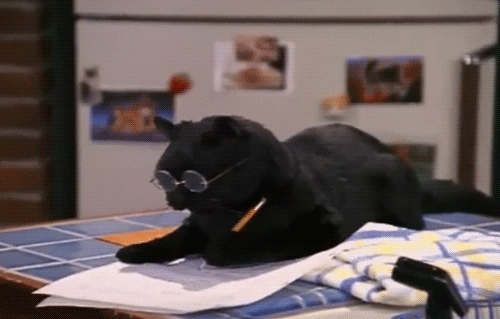
Some of the most common majors for aspiring writers include:
- English and American Literature
- Comparative Literature
- Dramatic Literature
- Journalism
- Dramatic Writing
To help you understand the differences between these majors, here’s an overview of the programs, class structures, and the kinds of writers who would thrive in them!
English and American Literature
School: College of Arts and Science
Students studying English will learn how to examine literature written in English. Students will take four English literature classes, where they explore the different contexts of literature from the origins of English to the 21st century.
Then, English and American Literature majors choose between two tracks: creative writing and literary studies. While creative writing students focus primarily on their own writing, literary studies students analyze the work of other writers.
Students have more freedom to explore specific topics in literature in their junior and senior years. For example, English and American Literature majors can take classes like 20th-Century African American Literature, Myths and Cultures of the Ancient Celts, and Jane Austen. (Yes, there’s a whole course dedicated to analyzing her work!)
Class Structure
Most courses are seminar style, which means they are discussion based. So students will read and examine texts for homework. Then they’ll have an open discussion during class time. Students on the creative writing track will have more workshops, where students will discuss each other’s work and how to improve their writing.
Types of Writers: Aspiring Novelists, Essayists, Screenwriters, Poets, and Many More!
Being an English and American Literature major allows for a broad understanding of literature that you can carry with you into any medium as a writer. In addition, you’ll develop analytical skills that can be used in any profession! I know people who have become lawyers, researchers, and professors using their English degree.
English is for students who love to read and analyze literature. If you love analyzing texts from different cultures and time periods and studying timeless writers, you might like being an English and American Literature major!
Comparative Literature
School: College of Arts and Science
In the Department of Comparative Literature, students analyze literature with a more interdisciplinary approach. Comparative literature (comp lit) students examine texts in fields like art history, linguistics, and philosophy from all over the world.
Like the English and American Literature major, Comp Lit has two tracks: literature and literary and cultural studies. Both tracks study world literature, but students on the literature track focus mostly on literature and linguistics. Some of their classes are taught in languages other than English like Italian or German! Whereas students on the literary and cultural studies track focus on reading world literature that deals with specific topics like religion, history, politics, and cinema studies. Courses include Chinese Literature in Translation, Kafka and His Contexts, and Topics in Italian Culture.
Class Structure
Both tracks are mostly seminar style with few opportunities for workshops. This may mean fewer opportunities, at least in comp lit classes, to practice creative writing skills. But comp lit students strengthen their analytical skills through essays.
Types of Writers: Aspiring Novelists, Essayists, Critics, and Academics
If you like to read texts written in different languages or discuss literature at the intersection of philosophy, linguistics, cinema studies, and art history, then comp lit may be for you!
Dramatic Literature
School: College of Arts and Science
The Dramatic Literature major focuses on the literary, historical, and critical aspects of theatre studies. This means students study the history of theatre, playwriting, cinema, and performance.
Dramatic literature (drama lit) students are required to take three history of theatre classes. Then they can pick classes in two areas: practical theatre and cinema. These areas aren’t specified tracks, but they allow students to tailor the major to what they’re interested in. For example, practical theatre classes give students more direct experience with creating for the stage. Cinema classes focus more on film analysis.
Like the Comp Lit and English and American Literature majors, students leave their programs with a global perspective of literature. Drama lit courses include Feminism and Theatre, Fundamentals of Acting I, and Theatre in Asia.
Class Structure
Most drama lit classes are seminar style. But students taking practical theatre classes will have more practice-based courses. Therefore, students will rehearse scenes and experiment on stage!
But seminars aren’t the only style of classes for Drama Lit majors. There are some playwriting workshops for students who want to work on their own plays.
Types of Writers: Aspiring Playwrights and (Theatre or Film) Critics
Drama lit is for students who love theatre and may have some interest in film. If you’re interested in the theory and history of theatre, drama lit may be a good fit for you! It’s also a good fit if you’re an aspiring playwright who is interested in theatre production.
Journalism
School: College of Arts and Science
The Arthur L. Carter Journalism Institute gives students the practical and theoretical skills they’ll need for a career in journalism.
All journalism students will learn about ethical practices in journalistic writing, conducting research, and reporting. Later, students can pursue one of two tracks: the print/online track or broadcast track. The print/online track is for those who want to focus on writing for print and online media. Whereas the broadcast track is for those who want to focus on reporting and video production for broadcasts.
Journalism courses include Audio Storytelling, Photojournalism, and Minorities in the Media.
At NYU, journalism students are required to double-major. But, since double-majoring is a program requirement, the curriculum is flexible.
Class Structure
Unlike the other majors previously discussed, the class styles vary here. Some are lecture and seminar style, but most of the courses have a practical approach. Students will come up with their own ideas, interview guests, and write their own stories. What’s more, those on the broadcast track will do the same but shoot and edit their pieces too!
Types of Writers: Aspiring Print or Digital Journalists
Journalism offers a lot of opportunity for students to build a strong portfolio of work and practice writing! If you’re interested in getting direct experience writing articles and segments or getting a well-rounded approach to journalism, the Journalism major may be the right fit for you!
Dramatic Writing
School: Tisch School of the Arts
Dramatic Writing trains students in all areas of dramatic writing, which refers to pieces of writing meant to be acted or performed. All students will take at least one course in playwriting, screenwriting, and episodic writing, then concentrate on one discipline.
The program’s focus is a mixture of analyzing scripts across all mediums and honing the craft. Courses include Writing for Late Night Television, Shakespeare for Writers, and The Romantic Comedy.
Class Structure
Most dramatic writing courses are workshop and seminar style. Students will work on their own scripts throughout each semester and receive feedback from the professor and their peers.
It’s also important to mention that students aren’t expected to write a full play or film as first-year students! First years won’t write more than 30 pages (unless they feel comfortable doing so). Throughout the years, the page count increases. By senior year, students will feel comfortable giving and receiving feedback, meeting deadlines, and working within the discipline of their choice.
Types of Writers: Aspiring Screenwriters, Playwrights, and TV Writers
The program’s scope is very focused on these three disciplines, so it might not be the best fit for those wanting a broader approach to literature and writing. But, if you’re like me, and you want to improve your script writing and/or find your voice as a dramatic writer, then the Dramatic Writing major may be for you!
Honorable Mentions
Here are some programs that offer writing classes but writing isn’t their main focus:
- Tisch School of the Arts
- Steinhardt School of Culture, Education, and Human Development
- Gallatin School of Individualized Study
Conclusion
There’s No Limit to How You Can Study Writing Here
Even though I’ve discussed whom each program is for, no program is one-size-fits-all. I know people in the Dramatic Writing program who still have a passion for poetry and creative writing. So they pursue a minor in Creative Writing!
It all boils down to how you want to improve your writing and which program will make you the happiest. If you’ve made it this far, I hope I’ve given you some insight into which major may best suit you.
